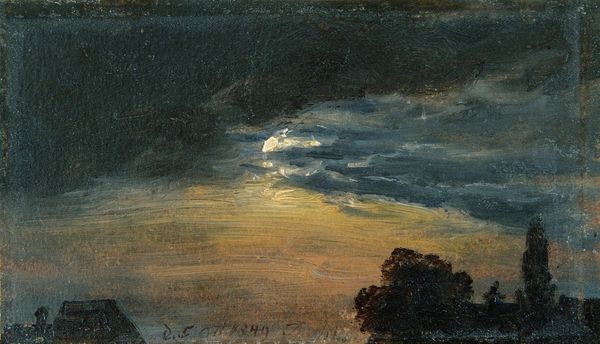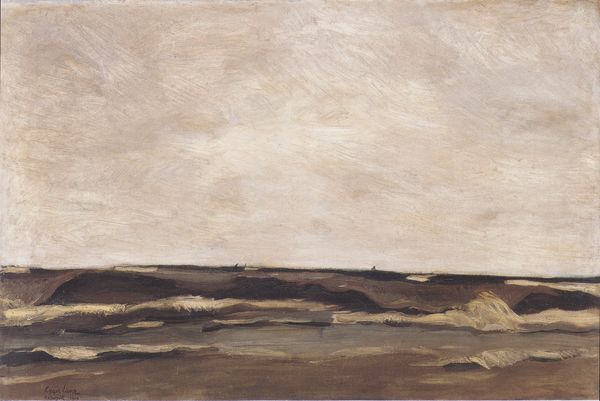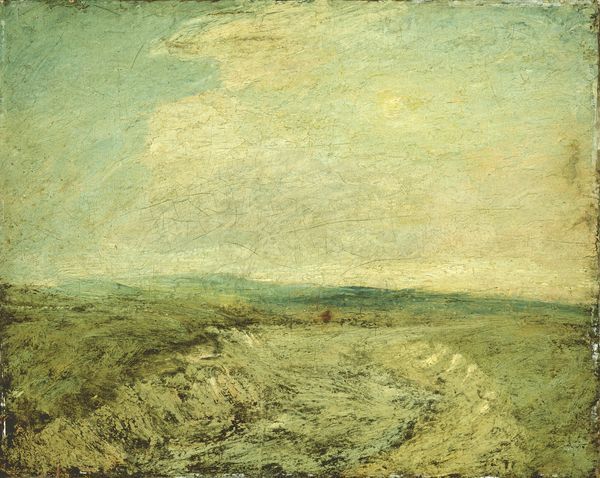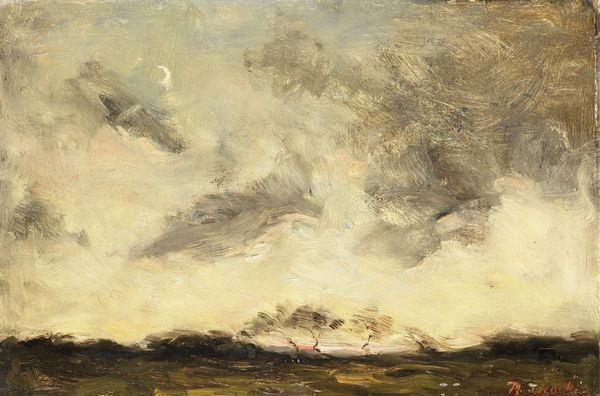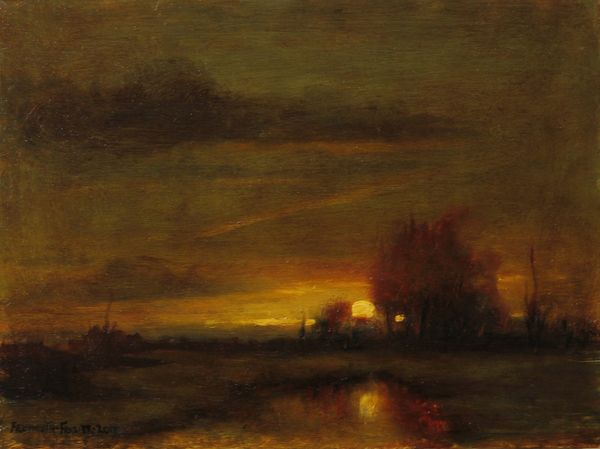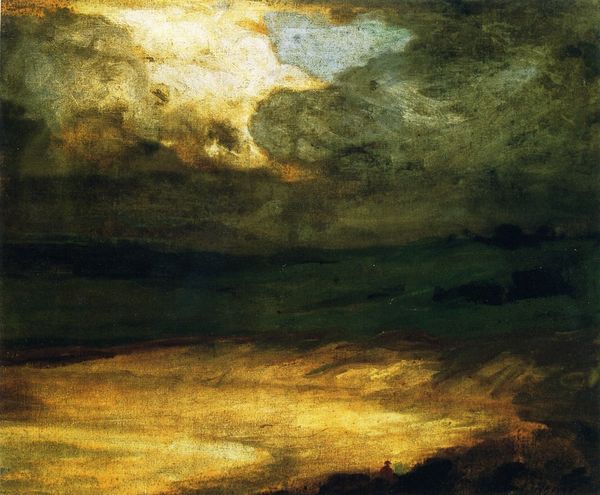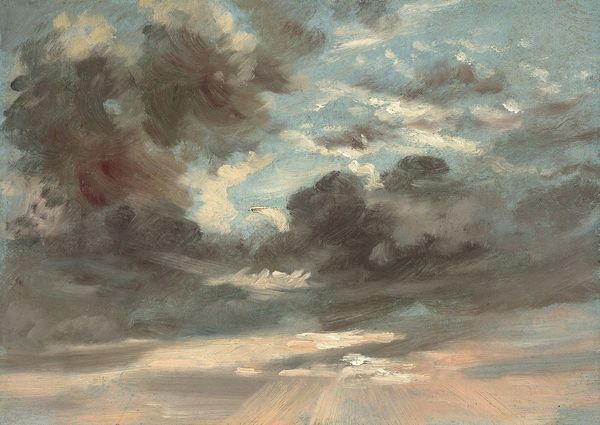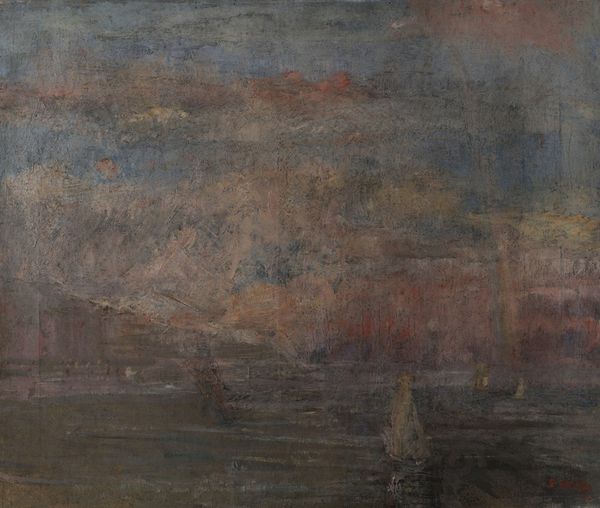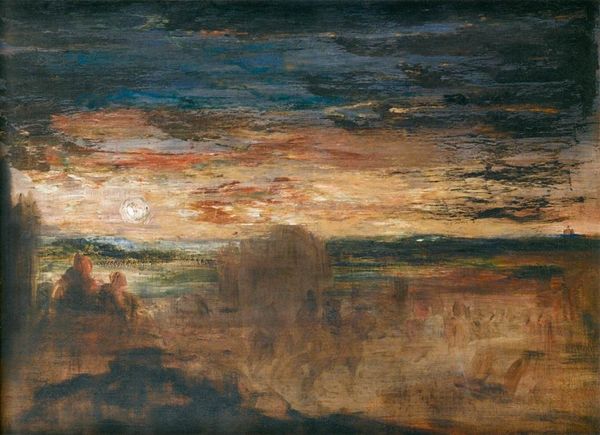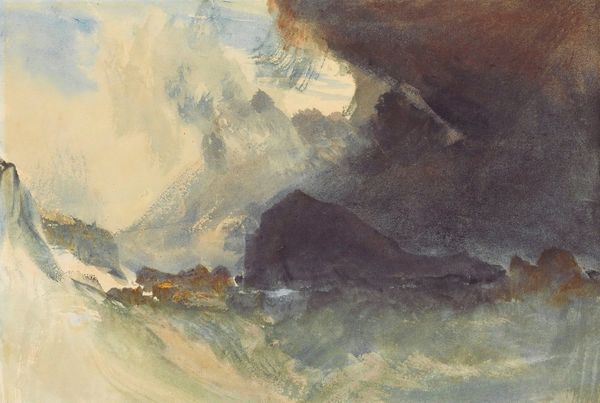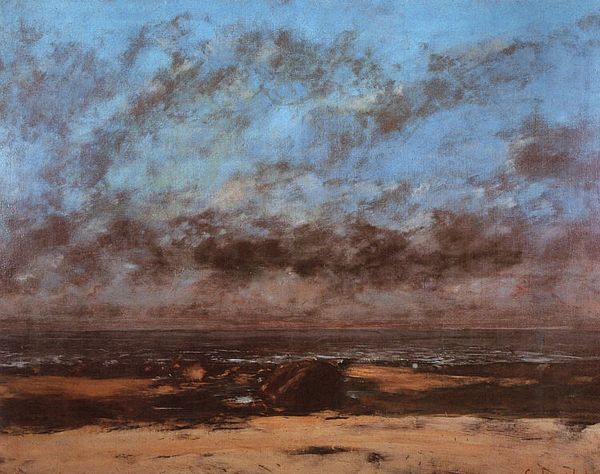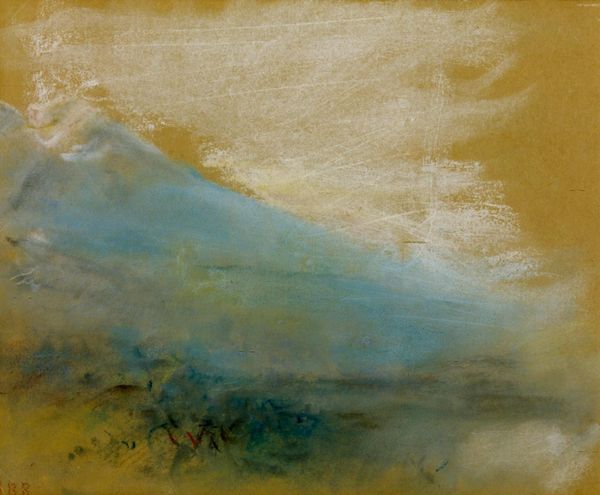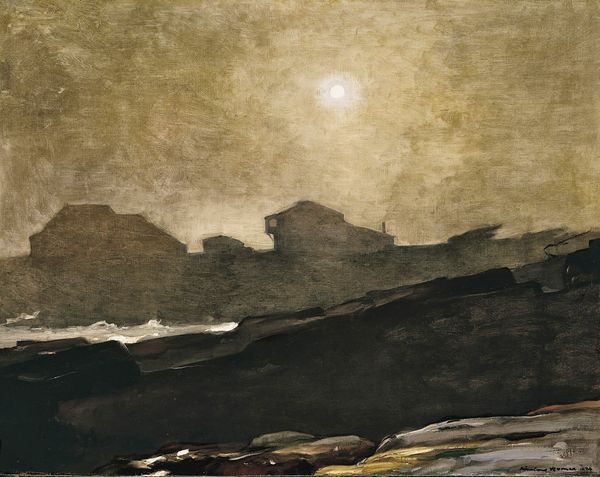
Dimensions: support: 1003 x 1365 mm
Copyright: CC-BY-NC-ND 4.0 DEED, Photo: Tate
Editor: This is Richard Wilson's "Niagara Falls," currently held at the Tate. The painting, while grand in scale, evokes a sense of the sublime, but also feels somewhat… staged, almost like a theatrical backdrop. What do you make of this depiction? Curator: The ‘staging’ you perceive highlights a critical tension of the era. Wilson, painting for a British audience, presents Niagara as a spectacle, a display of nature’s power safely contained and aesthetically consumed. How does this mediated experience of the ‘untamed’ landscape reflect Britain's burgeoning colonial ambitions? Editor: That's fascinating! So, it's not just about the falls themselves, but also about how the British viewed and perhaps even sought to control the natural world? Curator: Precisely. Consider how such images contribute to a sense of British cultural dominance and the appropriation of global landscapes for national identity. Editor: I never thought about landscape paintings in this way. It gives me a new appreciation of the politics embedded in art. Curator: Indeed. Understanding the social and political context allows us to see beyond the picturesque and recognize the power dynamics at play.
Comments
Join the conversation
Join millions of artists and users on Artera today and experience the ultimate creative platform.
Possibly from Turner's collection. Wilson's picture of the Falls is in the Wolverhampton Art Gallery, and the attribution of this reduced version has been debated between the painter himself, his studio, and Turner, if indeed it belonged to him. The subject would certainly have appealed to him, and it is possible the picture hung at Queen Anne Street. Gallery label, August 2001
